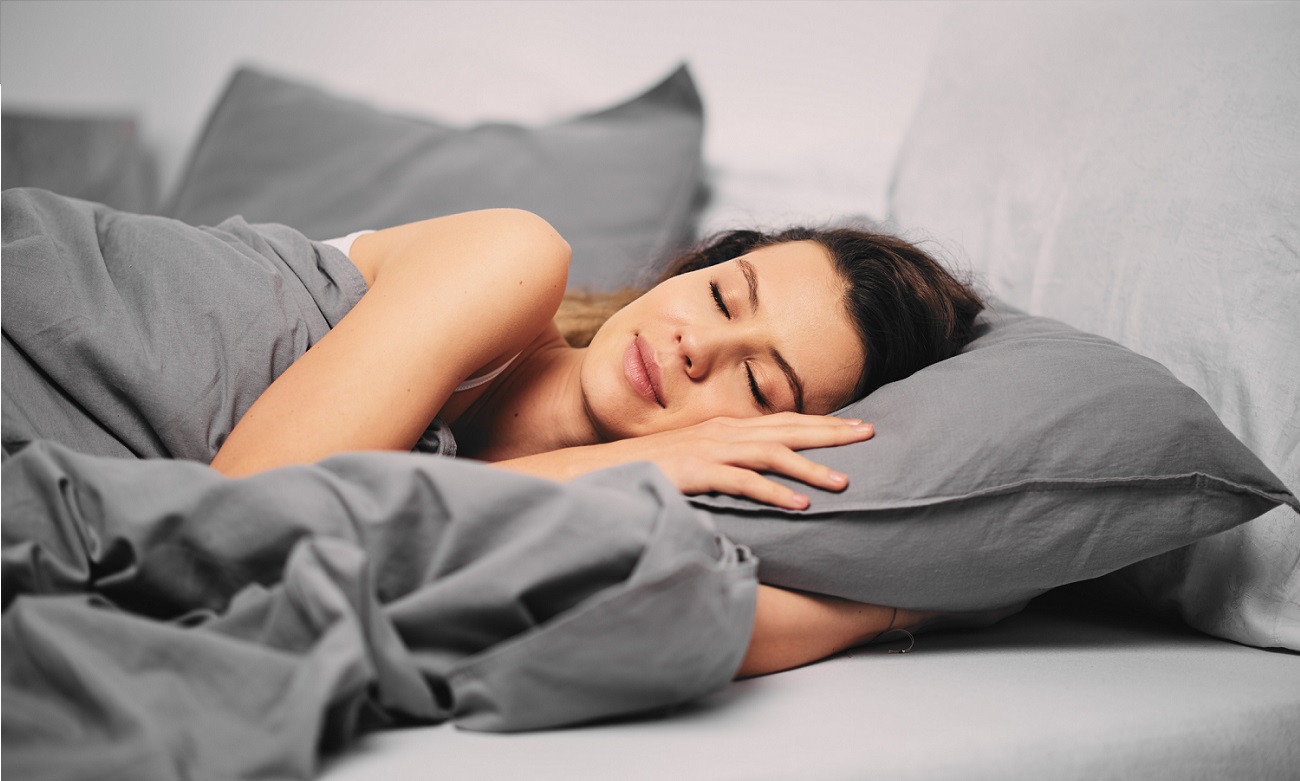Mouth taping is a practice that promotes nasal breathing during sleep, which may improve sleep...
Read More
Sleep is essential to our overall health. But everyone is comfortable sleeping in different positions—and not all sleep positions are equal. Here’s what you need to know about how your sleep position could affect your health.
According to the Sleep Foundation, about 60 percent of the U.S. population sleeps on their side. This is actually the healthiest position to sleep in, as it can relieve back pain, reduce snoring and sleep apnea symptoms, improve gut and brain health and help you have a healthy pregnancy.
“Side sleeping allows your spine to decompress while you’re sleeping, which is why many people report less back pain when sleeping in this position,” said Scott Rosenberg, M.D., a pulmonologist and sleep medicine specialist at Inspira Medical Group Pulmonary. “Your airway also stays more open when you’re on your side, and it’s easier for your body to pump blood throughout your system.”
As a side sleeper, try to get a medium-firm mattress that allows support and contouring. Consider getting a specialized pillow to sleep on your side. “Some people may experience shoulder pain when sleeping on their side, especially if their neck and head are not aligned,” said Dr. Rosenberg. “In these cases, you can try a higher lofted pillow and try to switch sides often.”
As the second most common sleeping position, back sleeping can keep your spine, head and neck aligned, allowing relief from back and neck pain. It can also reduce your risk of developing wrinkles because your face is not touching the pillow while you sleep.
If you have gastroesophageal reflux disease (GERD) or frequent heartburn, sleeping flat on your back may exacerbate your symptoms, but elevating your upper body can help relieve them. In addition, snoring or sleep apnea symptoms may worsen when you sleep on your back. Sleeping on your back is not recommended if you’re pregnant.
While some may find back sleeping uncomfortable, there are ways to improve this sleeping position to better suit your needs. “Try sleeping with a pillow under your knees, which can help your spine stay aligned,” said Dr. Rosenberg. “Placing a thin pillow under your back may help with alignment.”
If you sleep on your back, make sure your pillow is not too high—this can disrupt the natural curvature of your spine and may result in neck pain.
People spend less than 10 percent of the night sleeping on their stomachs. Stomach sleeping can cause a myriad of health issues, which could be why it’s so unpopular. This sleep position increases your risk of back, neck and shoulder pain and can also contribute to the development of wrinkles on your face.
“Sleeping on your stomach throws your spine out of alignment—your back will arch and your neck will need to be turned to the side,” said Dr. Rosenberg.
Just like back sleeping, stomach sleeping is not recommended for pregnant people.
If you feel most comfortable sleeping on your stomach, try using a thinner pillow or no pillow at all to keep your neck from bending out of alignment. You can also place a pillow under your hips to ensure your torso doesn’t sink into the mattress as you sleep. “Stomach sleepers may feel uncomfortable when they wake up, so doing morning stretches can help relieve any aches and pains,” said Dr. Rosenberg.
The best sleep position is the one that helps you get quality sleep. “No matter what position you’re in, sleep is essential to your overall health,” said Dr. Rosenberg. “So if you’re most comfortable in one position, you can discuss with your care team how to make that position work for you and your health.
To learn more about how to get quality sleep, contact Inspira Health’s sleep medicine specialists.

Mouth taping is a practice that promotes nasal breathing during sleep, which may improve sleep...
Read More
Waking up in the middle of the night can be frustrating, but picking up your phone or trying to...
Read More
Hurkle-durkle refers to the cozy, mindful act of unwinding before bed, focusing on relaxation and...
Read More
The material set forth in this site in no way seeks to diagnose or treat illness or to serve as a substitute for professional medical care. Please speak with your health care provider if you have a health concern or if you are considering adopting any exercise program or dietary guidelines. For permission to reprint any portion of this website or to be removed from a notification list, please contact us at (856) 537-6772